-
Hollywood remakes that fared well
-
ORIGINAL
INFERNAL AFFAIRS (2002)
Rotten Tomatoes rating: 95 per cent
Box office: US$8.7 million
Tony Leung Chiu Wai plays an undercover cop and Andy Lau is the planted mole in the police force in this tense thriller directed by Andrew Lau and Alan Mak, which was both critically acclaimed and a box-office hit.
REMAKE
THE DEPARTED (2006)
Rotten Tomatoes rating: 91 per cent
Box office: US$290 million
Leonardo DiCaprio and Matt Damon take over the roles played by Tony Leung Chiu Wai and Andy Lau respectively, and the film by Martin Scorsese won four Oscars, including for Best Picture, Best Director and Best Adapted Screenplay.
While the new version was well-reviewed, many feel the original still stands taller; articles such as 6 Reasons Why Infernal Affairs Is Better Than The Departed are circulating on the Internet.
One detail that was definitely superior in Infernal Affairs was the use of Morse code as a means of secret communication, instead of just plain SMSing. It is highly improbable that anyone could text a coherent message in secret and under stressful circumstances.
-
ORIGINAL
RINGU (1998)
Rotten Tomatoes rating: 97 per cent
Box office: 1 billion yen in Japan and HK$31.2 million in Hong Kong
The scene of long-haired Sadako climbing out of a TV set was like a nightmare brought to life in Hideo Nakata's seminal horror flick about a cursed videotape. It broke box-office records in Japan and Hong Kong and led to a number of Japanese sequels and remakes in English and Korean.
REMAKE
THE RING (2002)
Rotten Tomatoes rating: 71 per cent
Box office: US$249 million
Naomi Watts takes over from Nanako Matsushima as a journalist investigating the videotape's deadly curse. Newsweek said Gore Verbinski's "visually stunning movie serves up generous dollops of designer creepiness".
-
ORIGINAL
GOJIRA (1954)
Rotten Tomatoes rating: 83 per cent for the re-edited version, Godzilla, King Of The Monsters!, released in the United States in 1956
Box office: 152 million yen
This was the first film to feature the giant lizard Godzilla and it has been dubbed the granddaddy of all monster movies. Not just escapist entertainment, it reflected the anxieties of Japan after the atomic bombings at the end of World War II and at a time of nuclear testing in the Pacific.
REMAKE
GODZILLA (2014)
Rotten Tomatoes rating: 74 per cent
Box office: US$529 million
Not to be confused with Roland Emmerich's 1998 version which was universally panned, Gareth Edwards' take was largely well-received.
Salon.com called it "one of the most intriguing big-budget breakthrough films since Steven Spielberg made Jaws", the 1975 classic thriller film.
Netflix remakes Death Note movie - will it suffer fate of other Hollywood remakes?
Netflix takes a risk with its makeover of Japan's hit horror manga and film series Death Note, with Hollywood remakes often striking a sour note
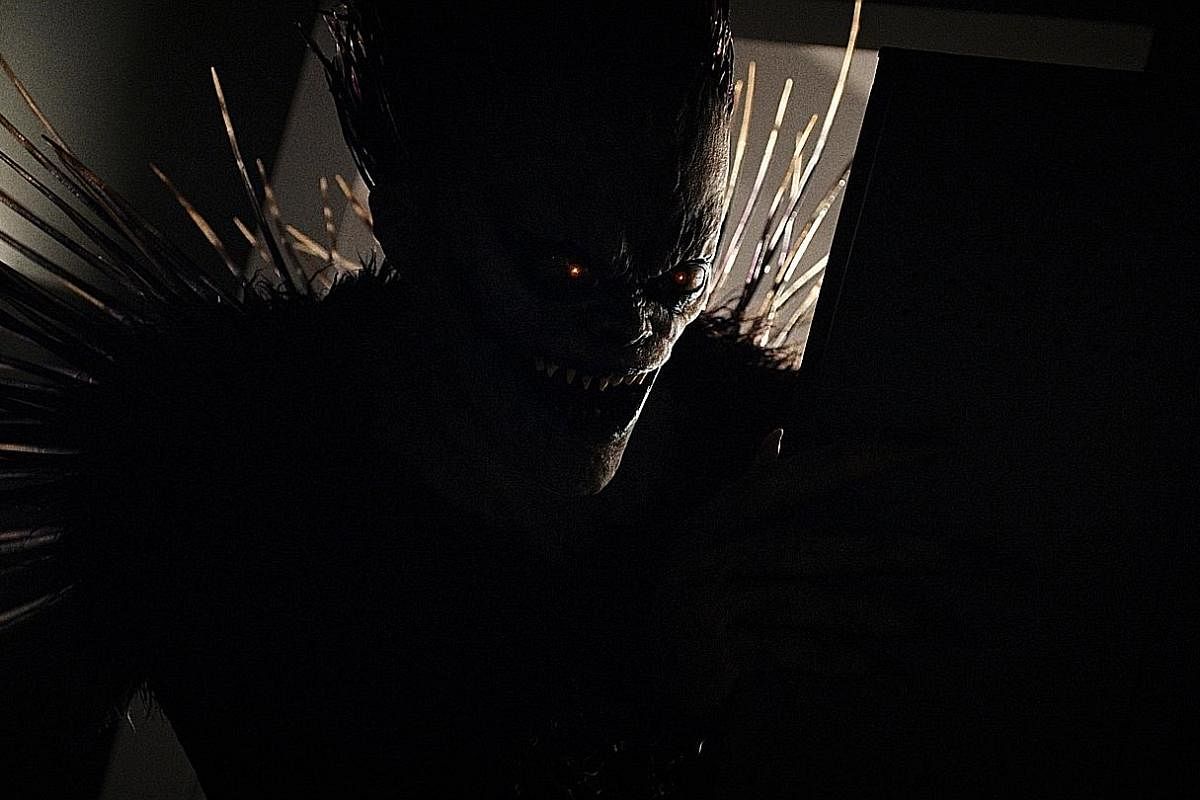
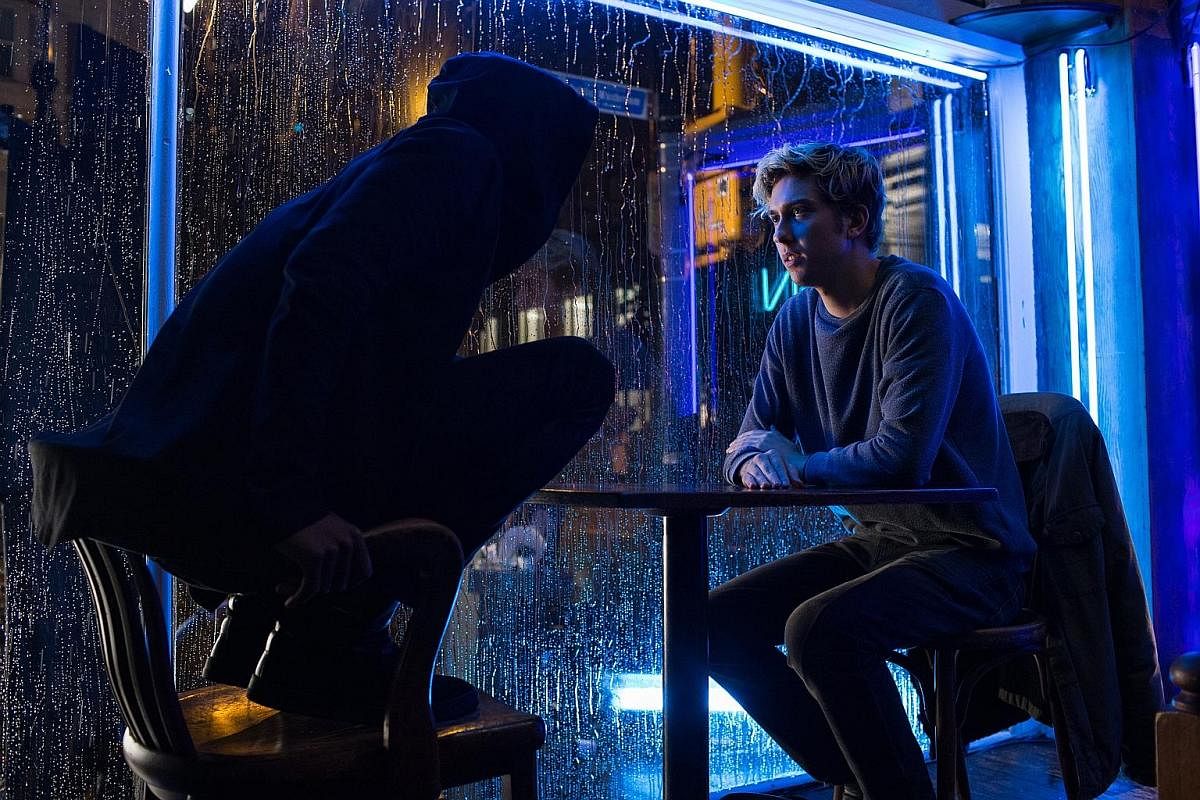
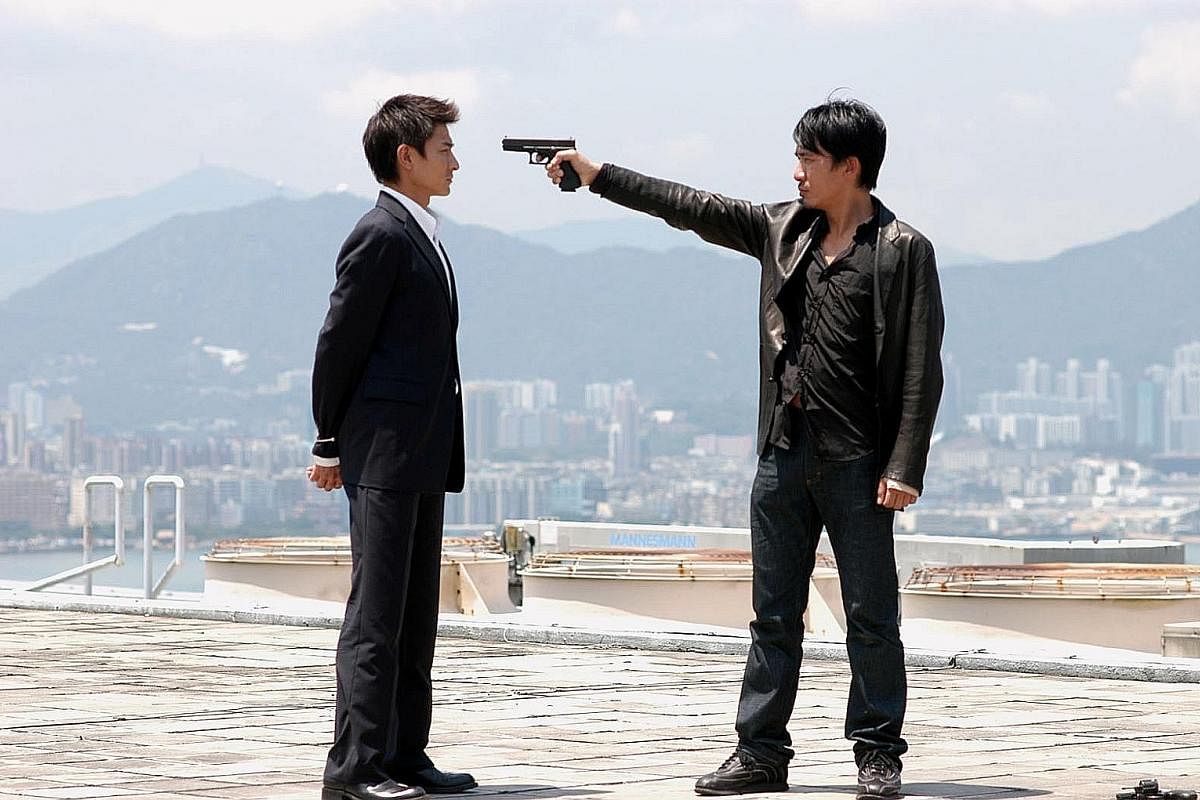
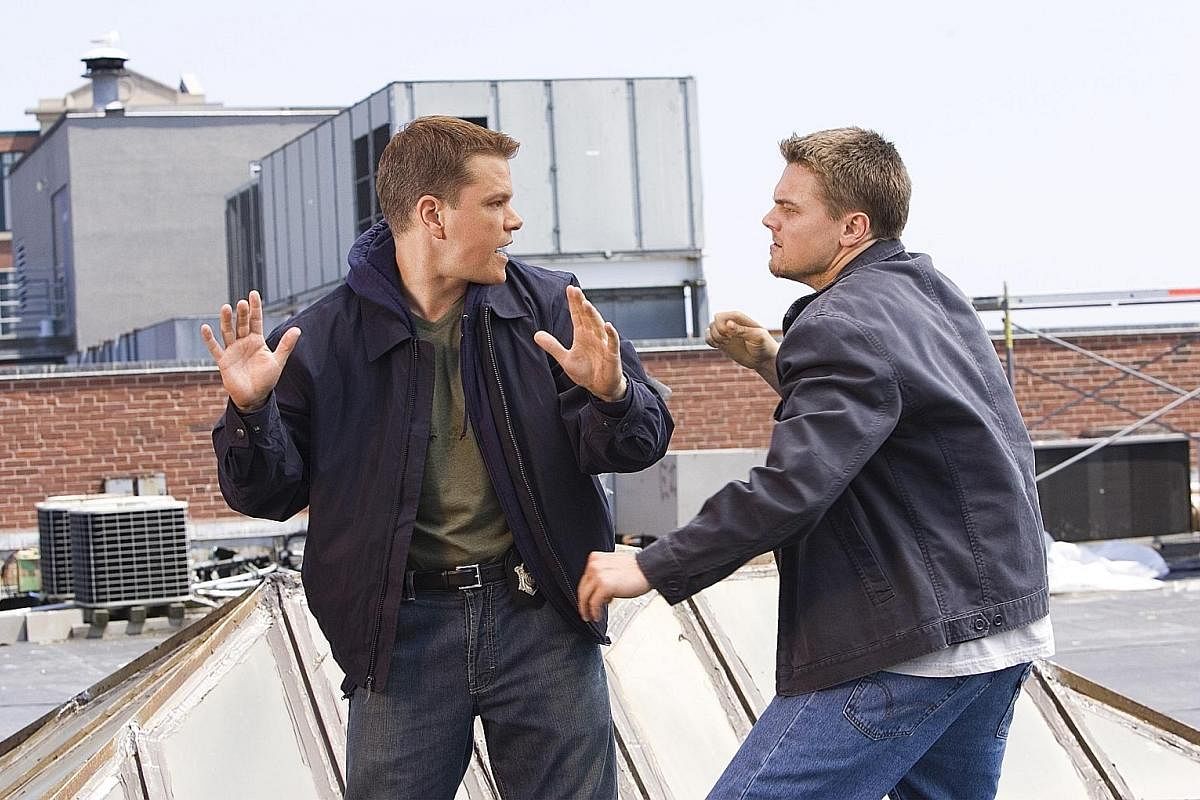
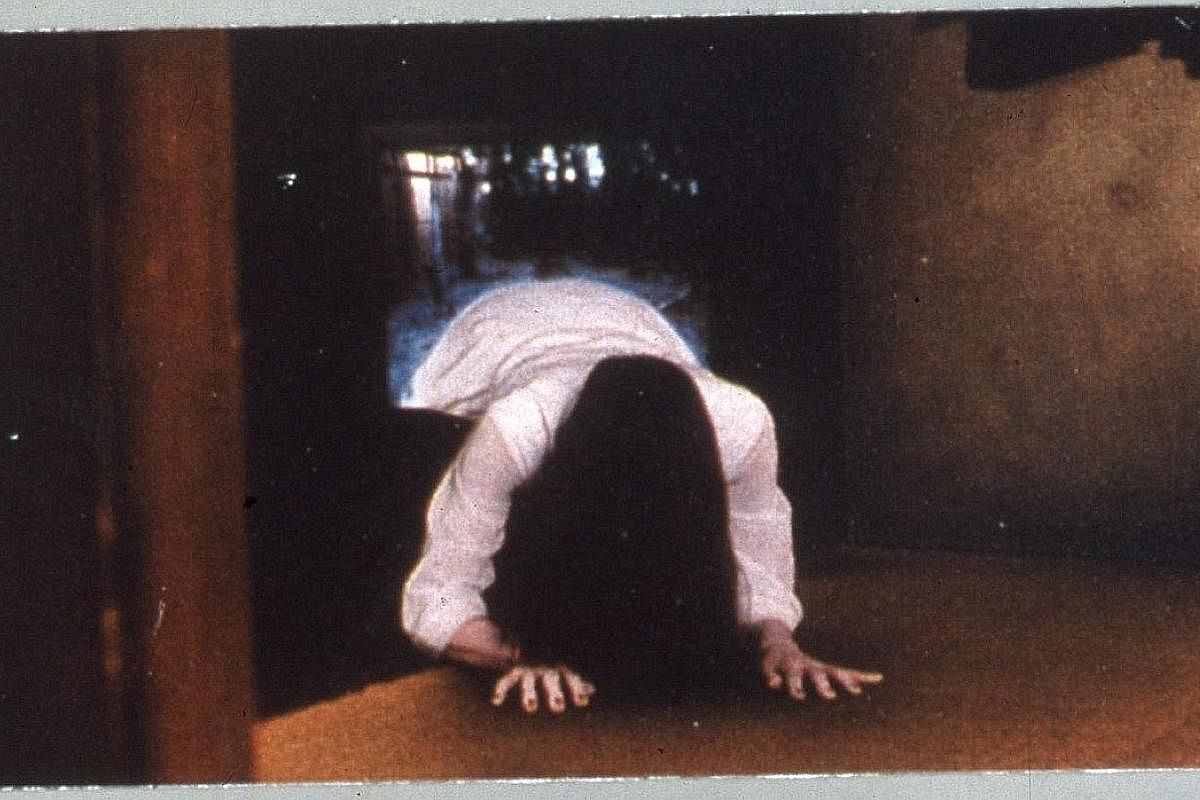
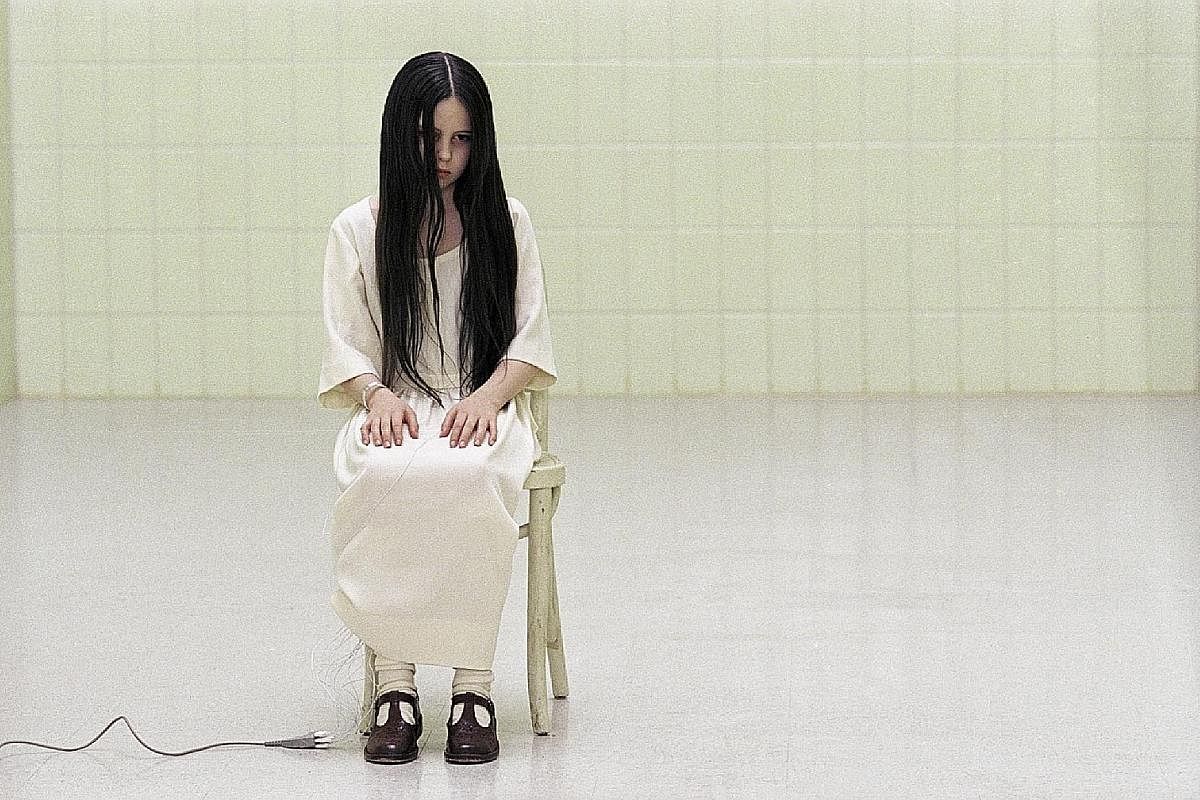
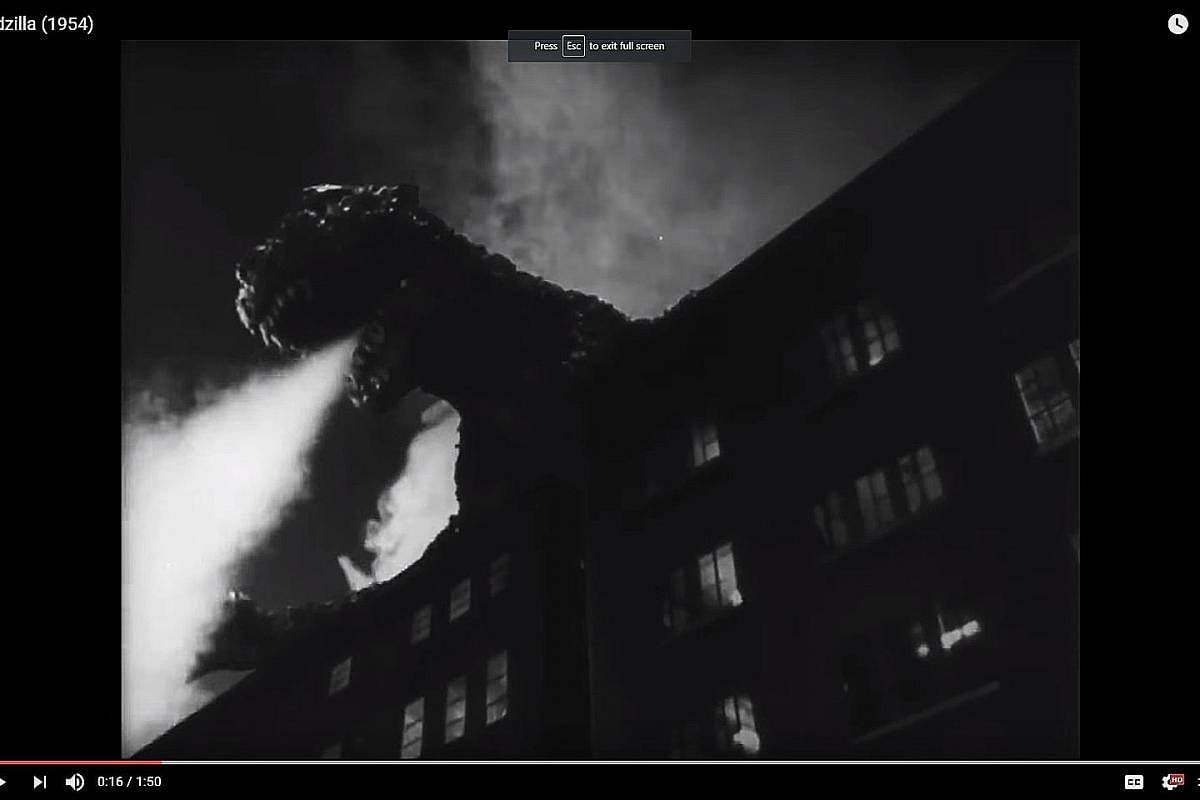

Hollywood remake - two words that can inspire dread in the heart of a movie fan.
The list of misfires is woefully long, including horror flicks Dark Water (2005), The Eye (2008) and Shutter (2008), romance drama The Lake House (2006) and mystery thriller Oldboy (2013).
In terms of quality, they run the gamut from lacklustre to, as homegrown film-maker and movie buff Eric Khoo exclaims, "horrifyingly horrible".
He says Dark Water and Shutter were "terribly executed and nowhere as frightening as the originals".
Tampa Bay Times called Spike Lee's remake of Park Chan Wook's 2003 Oldboy "needless for both its repetition and tweaks". And critics found fault with the slow pacing and wooden leads of Keanu Reeves and Sandra Bullock in The Lake House, the remake of South Korean time-hopping romance Il Mare (2000).
Detractors point to the difficulty of translating Asian stories into a Western context, but acknowledge that the remakes can help the tales reach a much wider audience.
At the same time, Hollywood's deep pockets can also mean spiffier productions with more and better special effects.
For better or worse, they keep on coming.
The latest Asian work to get the English-language makeover is the Japanese horror fantasy Death Note. Whoever possesses the titular notebook will be able to kill anyone simply by writing the person's name while picturing his face. College student Light Yagami gets his hands on one and starts to wield it like a sharp sword in the name of justice. L is the brilliant but eccentric detective out to stop him.
Originally a manga series (2003-2006), it has spawned video games, an anime series (2006- 2007) and live-action films, notably Death Note (2006) and Death Note 2: The Last Name (2006), both of which starred Tatsuya Fujiwara as Light and Kenichi Matsuyama as L.
In the new version, which premieres on Netflix on Friday, Nat Wolff from young adult romance The Fault In Our Stars (2014) plays Light Turner, while Keith Stanfield, who appeared in sleeper hit thriller Get Out (2017), plays L. Veteran actor Willem Dafoe voices Ryuk, a shinigami, or god of death.
Film-maker Michelle Chong, 40, feels remakes are generally a bad idea. "The only reason studios want to remake a film is because the original made a lot of money, so the focus is often on that and hence remakes always lack the heart, pride and soul of the original filmmakers and never become classics of their own."
As a result, the nuances and subtleties of the original works end up getting bulldozed over.
Chong points out: "Hollywood remakes of Asian titles are even harder to execute because of all the Asian cultural references in the movies, so the language and premise of the remakes usually end up stilted and unnatural, making the movies less scary, like The Ring (2002)."
Proving her point is the example of Thai horror flick Shutter (2004), which zooms in on mysterious images seen in developed photographs. It was a huge box-office success, earning US$7 million. The 2008 English-language remake grossed almost US$48 million, about six times its budget of US$8 million.
While the Thai original had a middling score of 56 per cent on reviews aggregator website rottentomatoes.com, the Hollywood version had a dismal score of 7 per cent. The Austin Chronicle's film critic lamented: "The very Thai-specific charms that made the original Shutter such an unforeseen, unpredictable delight when I first saw it are almost entirely absent here."
Founder of film culture website SINdie, Mr Jeremy Sing, 40, says. "I think Asian culture and sensibilities operate as much on the spoken level as on the unspoken. The superstitions that people are hush-hush yet steeped in deep belief about, the hidden poetry between the lines - these often get filtered out or diluted in the Hollywood remakes."
He adds that the makeovers are surface ones that re-create storylines and characters, but "(fall) short in re-creating the atmosphere, which is often integral to the film".
Given the sub-par track record of Hollywood remakes, fans of Death Note are divided on the Netflix version of it.
Divided over Death Note remake
Corporate video producer Tan Wei Yang, 25, is excited about the film as he likes the casting, including the choice of Dafoe to voice a shinigami. He says: "The fact that they are doing this through Netflix is smart and safe as it is known to have well-directed shows such as (ongoing superhero series) Luke Cage and Jessica Jones."
And, from the trailer, the show looks "really beautiful", he adds.
He says: "(Hollywood remakes) are upscaled in budget compared with the originals and that helps in visual effects, which means they are much more visually appealing."
Another fan, vice-chairman of the Singapore Film Society David Lee, 38, is less sanguine about its prospects.
He says: "One of the things I enjoyed most is the Japanese manga feel of the original films and the chemistry between the two lead actors. I think it would be difficult to replicate and achieve that kind of chemistry in an American setting and with new actors."
In general, a remake is doomed to fail when it is overly "Hollywoodised", as he calls it - "introducing formulaic and cliche commercial elements that stray from the ideas that make the original great".
One egregious sinner was Godzilla (1998) by Roland Emmerich, which was "just another gigantic monster attack/alien invasion movie", whereas in the Japanese films, Gojira, the giant lizard, was a symbol of the nuclear holocaust and was even the misunderstood good guy in some of them. Emmerich's film "won" the Razzie for Worst Remake Or Sequel even as it earned US$379 million worldwide.
And while the idea of a remake might conjure mixed feelings in film-makers, they are not impervious to the charms of Hollywood should it come knocking on their doors to option remake rights to their movies.
In the case of Chong's comedy Lulu The Movie (2016), for example, she muses: "A Netflix/Hollywood remake would totally work. They have the money to cast the real (Chinese actress) Fan Bingbing, (as) #SGfanbingbing was Lulu's hashtag."
Asked if he would bite if there is an offer for his acclaimed drama Mee Pok Man (1995), Khoo says: "If they are going to pay me to remake Mee Pok Man, I'd definitely sell it as it'll be great to watch a chop suey version of it. Hopefully, they'll throw some zombies into the mix."
•Death Note premieres on Netflix on Friday.
Join ST's Telegram channel and get the latest breaking news delivered to you.
A version of this article appeared in the print edition of The Straits Times on August 23, 2017, with the headline Netflix remakes Death Note movie - will it suffer fate of other Hollywood remakes?. Subscribe

